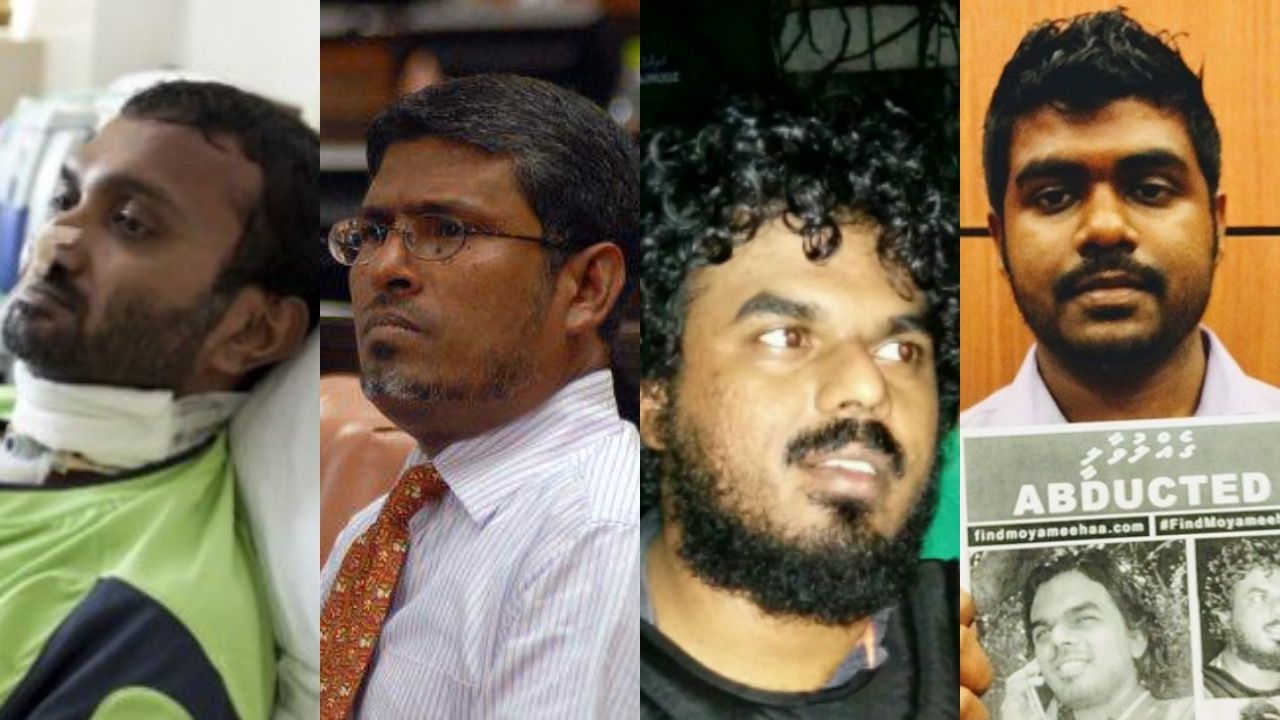Extremist group ‘masterminded’ murders and abduction
The murders of a moderate scholar, blogger and the abduction of a journalist were connected.

21 Mar 2019, 09:00
The murders of a lawmaker, liberal blogger and the abduction of a journalist were carried out by an extremist group, the chair of a presidential commission has told the Committee to Protect Journalists.
Husnu Suood told a CPJ researcher that the attempted murder of blogger Ismail Khilath Rasheed in June 2012, the assassination of lawmaker Dr Afrasheem Ali in October 2012, the abduction of Maldives Independent journalist Ahmed Rilwan in August 2014, and the murder of blogger Yameen Rasheed in April 2017 were all connected.
“What did the four share in common? All spoke about social issues, human rights, and religion. And all were popular, with large followings, typically online,” reads a report by CPJ’s Asia programme research associate Aliya Iftikhar.
“The attacks were masterminded by one group and were motivated by religious, militant elements, with gang involvement, Suood said, without naming the group.”
Become a member
Get full access to our archive and personalise your experience.
Already a member?
Discussion
No comments yet. Be the first to share your thoughts!
No comments yet. Be the first to join the conversation!
Join the Conversation
Sign in to share your thoughts under an alias and take part in the discussion. Independent journalism thrives on open, respectful debate — your voice matters.




